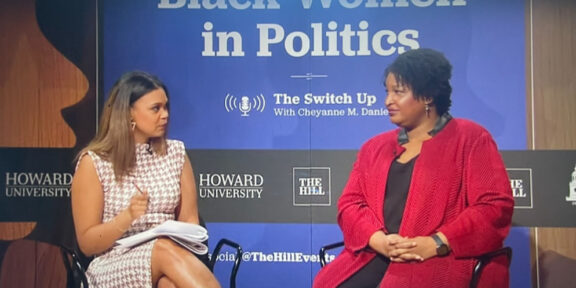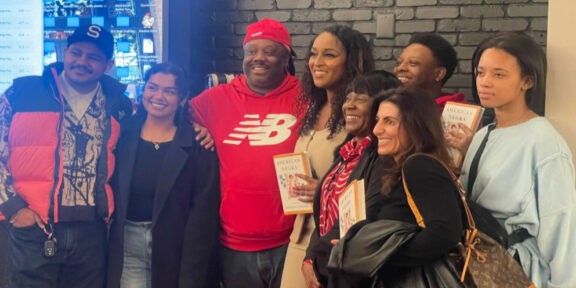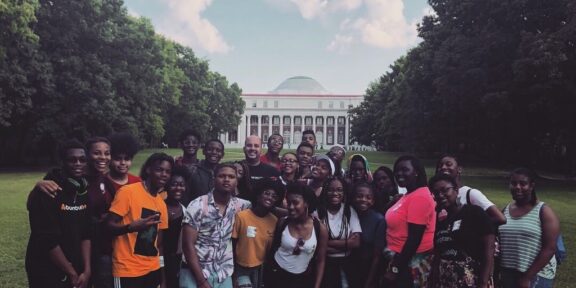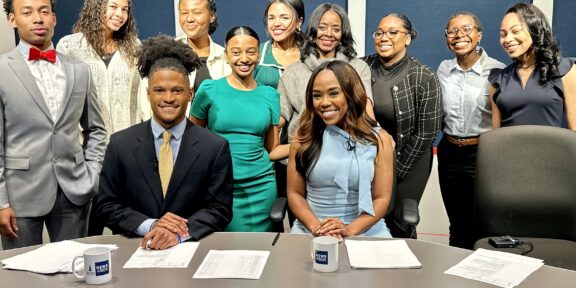By Aniya Greene
Surrounded by shelves of books ranging from children’s stories to young adult fiction, audience members made their way to their seats, where they awaited the arrival of the three speakers.
Authors Cherly Head, Christine Platt and Nicole Cuffy were greeted with applause as they approached their seats for the roundtable.
The three women were invited to take part in East City Bookshop’s Black History Month Event, Chocolate City: Black Authors on Black Stories.
The three authors ranged in genres from mystery and fiction to non-fiction, which was partly why Events Coordinator Destinee Hodge chose them for the event.
“I knew that each of them fell into different genres as authors. It was important for me to show a range of different storytellers for this event,” Hodge said.
As Black storytellers, the women addressed the importance of storytelling to empower themselves and their audience.
“I’ve always been attracted to storytelling. I love being in control of a narrative in a world where I’m disempowered,” said Nicole Cuffy, who wrote the historical fiction book “Dances.” Her debut novel it tells the story of the first Black woman principal dancer at the New York City Ballet.
Cuffy said she found publishers who were receptive to her novel, an experience that she said can be rare.
“I was very lucky that people were interested in this story. Publishers want stories they think they can sell,” she said.
Beyond the obstacle of selling stories, there are disparities within publishing that disproportionately affect authors of color.
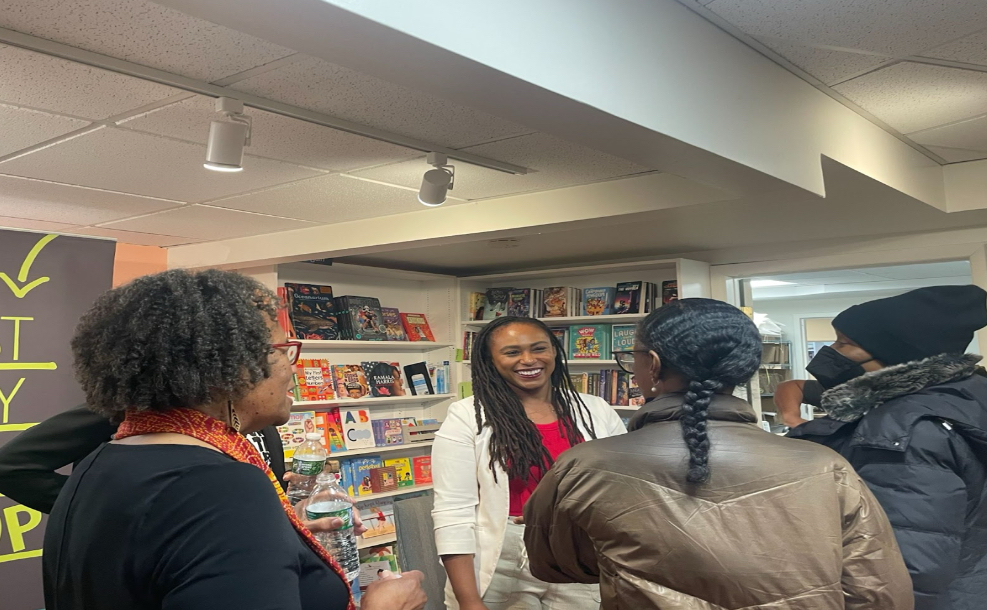
Authors Cheryl Platt and Nicole Cuffy talk with audience members after their roundtable discussion. The authors were asked questions about their future works and personal experiences in publishing. (Aniya Greene, HU News Service)
James Tager, Director of Research of PEN America, a non-profit organization that uses advocacy and literature to protect free speech, said the lack of diversity in publishing has impacted the number of diverse stories being told.
“Publishing has historically been disproportionately white. Publishers pick what they like and what they relate to, which affects the amount of stories by authors of color being published,” said Tager.
In addition to the lack of diversity within publishing, pay disparities also exist between authors of color and white authors. In 2020, the social media movement #PublishingPaidMe, started by L.L. McKinney, prompted both Black and white authors to disclose their advances.
“The disparities were astounding,” said Christine Platt, author of the ‘Afrominimalist’s Guide to Living with Less.’ “I know very few Black writers whose first advance wasn’t egregious,” she said.
While many are calling for and working towards changes in these disparities within the publishing industry, they don’t see the potential change as being long-lasting.
“Many authors fear that without sustained public attention and publishers having a game plan, there will be more of a cyclical plan in place,” Tager adds.
Tager describes this plan as an ongoing cycle in which publishers attempt to achieve more diversity in the industry through unsustainable practices. He says this cycle will result in only temporary progression towards equity in the industry.
Beyond the uncertainty of diversifying the publishing industry, authors like Platt remain committed to telling a range of stories.
“We have a responsibility as Black writers to tell stories that readers know exist but haven’t had the opportunity to read,” she said.


